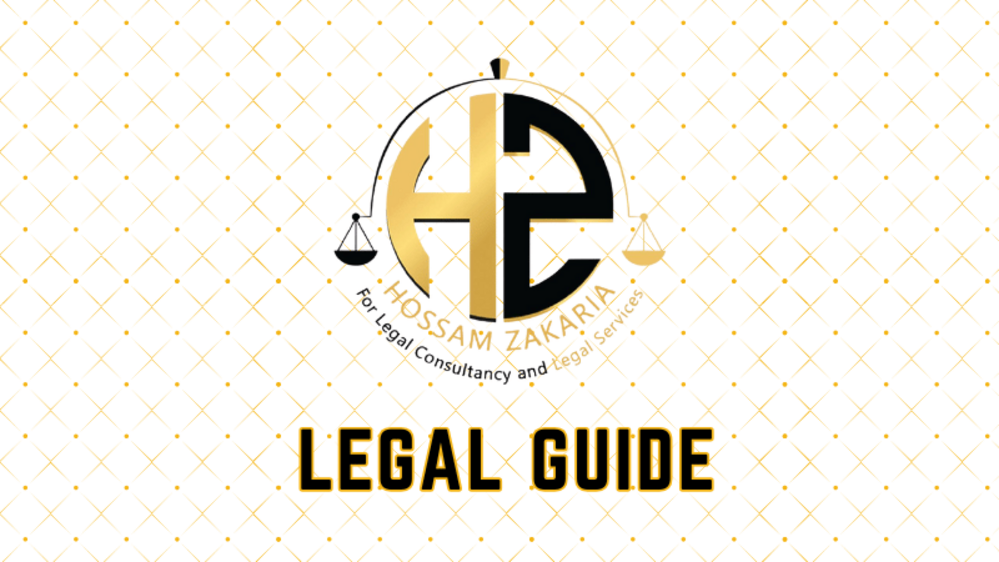Introduction: The Growing Importance of Ethical Artificial Intelligence in UAE and Qatar
Artificial Intelligence (AI) has rapidly transformed the commercial and regulatory landscape across the GCC, with the UAE and Qatar at the forefront of AI adoption in the public and private sectors. As AI technologies become more deeply embedded in decision-making, operations, and customer engagement, the ethical, legal, and compliance challenges facing executives intensify. In 2024 and 2025, both the UAE and Qatar have introduced significant updates to their legal frameworks, aiming to shape the responsible use of AI and promote international standards of transparency, fairness, and accountability.
This article offers a thorough legal analysis of these recent developments. We examine the implications of new federal decrees, Cabinet resolutions, and regulatory guidance, providing professional insights tailored for business leaders, HR managers, compliance officers, and legal practitioners in the UAE and Qatar. By dissecting legal provisions and offering practical compliance strategies, this guide equips organizations to navigate the complex and evolving regulatory landscape governing ethical AI.
Table of Contents
- Overview of UAE and Qatar Legal Frameworks for AI
- Key Legal Developments in 2024 and 2025
- Core Ethical Principles Mandated by Law
- UAE Federal AI Legislation Analysis
- Qatar AI Legal Landscape
- Compliance Risks and Pitfalls
- Practical Strategies for Legal Compliance
- Case Studies and Hypotheticals
- Implications for Businesses and Executives
- Conclusion and Forward-Looking Perspective
Overview of UAE and Qatar Legal Frameworks for AI
The Regulatory Imperative
The accelerating deployment of AI poses complex legal, ethical, and operational questions. Recognizing these challenges, Qatar and the UAE have initiated cross-sector regulatory frameworks to ensure AI usage aligns with international best practices. These frameworks address the risks of algorithmic bias, privacy breaches, lack of transparency, and other ethical concerns. Both jurisdictions now require organizations deploying AI to prove not only technical proficiency, but also ethical intent and robust compliance measures.
Key Regulatory Institutions
In the UAE, AI oversight exists through various ministries and independent bodies:
- UAE Ministry of Justice
- UAE Ministry of Artificial Intelligence, Digital Economy and Remote Work Applications
- UAE Ministry of Human Resources and Emiratisation
- Federal Data Protection Office (FDPO)
Qatar’s main regulatory actors include:
- Ministry of Transport and Communications (MOTC)
- Qatar Financial Centre Regulatory Authority (QFCRA)
- Qatar National AI Committee
Why Executive Compliance Is a Strategic Priority
Stringent penalties, business reputation risks, and potential operational disruption mean that non-compliance can translate into immediate as well as long-term liabilities. Executives across sectors—especially those handling financial data, healthcare information, or large-scale customer insights—must ensure their AI strategies reflect evolving legal mandates.
Key Legal Developments in 2024 and 2025
UAE Law 2025 Updates: Overview
The UAE announced, and is entering into force, several pivotal AI laws and regulations in 2024 and 2025, reflecting its ambition to set regional standards for ethical AI:
- Federal Decree-Law No. 45 of 2021 (Personal Data Protection Law, PDPL) – enforced from January 2022, with new executive regulations entering 2024/2025, significantly governing AI data processing.
- Cabinet Decision No. 6 of 2022 – stipulating data processing obligations for AI-driven decision-making entities.
- AI Ethics Policy updates shaped by the UAE Council for Artificial Intelligence & Digital Transactions.
Qatar AI Legal Developments
- Qatar National Artificial Intelligence Strategy (QNAIS, launched in 2019, updated 2024) – mandates ethical AI usage across sectors.
- Qatar Data Protection Law (Law No. 13 of 2016) – with 2024 amendments, explicitly covering algorithmic transparency, bias avoidance, and consent in AI-driven processing.
- Sector-specific AI regulations for health, finance, and public services, steered by the Supreme Committee for Delivery and Legacy and Qatar Central Bank.
| Jurisdiction | Aspect | Pre-2020 Regime | Post-2024/2025 Regime |
|---|---|---|---|
| UAE | Personal Data in AI | No explicit AI provision; general data protection rules | PDPL & Cabinet Decision – strong explicit obligations for AI actors |
| Qatar | AI Ethics in Public Sector | No binding guidelines | QNAIS enforcement, mandatory sectoral codes of ethics |
| UAE | Breach Penalties | Fines, limited scope | Higher administrative/financial/operational sanctions, personal liability for executives |
| Qatar | Algorithmic Bias | Not addressed | Explicit anti-bias compliance mandated |
Core Ethical Principles Mandated by Law
Transparency
Both countries require that organizations using AI must transparently disclose when individuals/customers are subject to automated profiling or decision-making. This includes:
- Clearly informing affected parties about the use and logic of algorithmic systems
- Maintaining explainable AI models (per PDPL Executive Regulations, UAE)
- Providing human oversight or accessible appeal mechanisms (mandated in QNAIS and Qatar Central Bank Guidelines)
Fairness and Non-Discrimination
Entities must demonstrate that their AI systems are free from:
- Unjust bias related to race, gender, nationality, religion (per Article 5, PDPL; Qatar Data Protection amendments)
- Disparate impact, especially in employment, financial services, and healthcare
Accountability and Human Oversight
UAE and Qatar both emphasize that ultimate accountability for AI outcomes rests with the organization’s leadership. Even in automated contexts, there is a legal duty to:
- Establish clear chains of responsibility
- Appoint designated data protection officers (DPOs) or AI ethics officers
- Retain the right for individuals to contest machine-made decisions
Data Security and Privacy
Entities must ensure technical and organizational measures are in place to protect personal data processed or inferred by AI:
- Mandatory data minimization, anonymization where possible (per Article 7, UAE PDPL)
- Encrypted data flows, strict access controls
- Prompt breach notification and containment requirements (Qatar DP Law, Art. 13-15).
UAE Federal AI Legislation Analysis
Federal Decree-Law No. 45 of 2021 (PDPL): Provisions and Application
The UAE’s PDPL, administered by the Federal Data Protection Office, is the spine of legal protection for AI-driven processing of personal data. It applies to any entity (public or private) that processes the data of individuals residing in the UAE—even if the provider is outside UAE borders.
Notable Provisions:
- Lawfulness, Fairness, and Transparency (Art. 4.1): All data processing—especially automated AI decisions—must be legal, fair, and transparent.
- Automated Decision-Making (Art. 9, 15): Individuals have the right to refuse decisions based solely on automated processing, unless expressly permitted by law.
- Data Protection Impact Assessments (DPIAs): Mandatory for high-risk AI projects; must identify and address risks before deployment.
- Data Subject Notification: When deploying AI that affects legal rights or significant interests, prior notification to users is obligatory.
- Sanctions: Fines up to AED 5 million per violation for serious breaches (see Table below).
| Breach/Violation | Pre-2022 Penalty | 2024/2025 Penalty |
|---|---|---|
| Processing without informed consent | Warning/Low fine | Up to AED 5 million |
| Failure to conduct DPIA for AI systems | Not applicable | Fines + order to cease processing |
| Discriminatory automated decisions | Not addressed | Administrative sanctions, audit |
Cabinet Decision No. 6 of 2022: Executive Regulations
This regulation details enforcement of the PDPL in AI and requires every entity employing automated algorithms for material decisions to:
- Register AI projects with the data protection authority before launch
- Submit technical documentation proving absence of unjust bias
- Make available a plain language “explanation” to subjects upon request
Ethical AI Policy: Ministerial Guidelines
The UAE Ministry of Artificial Intelligence’s Ethical AI Guidelines (latest revision, 2024) prescribe best practices for organizations across all sectors. Core elements include:
- Proactive bias testing and audits (at least annually or when significant changes are made)
- Data protection by design and default for all AI-powered services
- Robust user opt-out or escalation mechanisms for high-impact use cases (e.g., HR, financial approvals, medical triage)
Qatar AI Legal Landscape
Qatar National Artificial Intelligence Strategy (QNAIS), 2024 Update
QNAIS sets sector-specific priorities for ethical AI, from healthcare to infrastructure and beyond:
- Mandatory AI Ethics Impact Assessment (AIEIA) before large-scale deployment
- Explicit prohibition of discriminatory/biased AI systems in public sector applications
- Integration of AI ethics compliance into national public tenders
- Appointment of AI Ethics Officers in organizations above a specified size threshold
Qatar Data Protection Law (Law No. 13 of 2016, Amended 2024)
The 2024 amendments mark a sea change in compliance obligations for AI. Notably:
- Article 19: Right to explanation—individuals subject to AI-based decisions can demand a meaningful explanation and human review
- Article 21: Mandatory notification to the Qatar Data Protection Office for any AI-related data breach within 72 hours
- Article 24: Higher fines for violation of ethical and data protection requirements, up to QAR 1 million per incident
Sectoral and Ancillary Regulations
- Banking: Qatar Central Bank’s Circular No. 5/2024, directs financial institutions to “subject all credit, lending, and KYC-automation AI systems to independent third-party fairness audits.”
- Healthcare: Ministry of Public Health requires hospitals and clinics deploying diagnostics or triage AI to conduct bias and transparency assessments quarterly.
Compliance Risks and Pitfalls
What Are the Key Risks Facing UAE and Qatar Entities?
- Regulatory Investigations: Failure to register or conduct impact assessments can trigger unannounced audits and injunctions.
- Reputational Harm: Publicized breaches—especially involving discrimination, privacy, or lack of transparency—carry major public and stakeholder trust risks.
- Financial Sanctions: Substantial fines can accrue rapidly, with personal liability extending to DPOs, compliance teams, or even board directors for willful neglect.
- Business Disruption: Regulatory orders may require suspension of AI operations pending remediation or investigation.
| Type of Breach | UAE Penalty | Qatar Penalty | Other Consequences |
|---|---|---|---|
| No AI DPIA / AIEIA | Max AED 5m, cease order | QAR 1 million, public notification | Regulatory monitoring for 2 years |
| Discriminatory algorithm | Audit mandatory, fines | Audit + fine, regulatory review | Publicity, tender disqualification |
| Failure to report breach | Fines, prosecution | Fines, potential criminal action | Customer compensation claims |
Practical Strategies for Legal Compliance
Building a Robust AI Governance Framework
- Establish an AI Ethics Committee reporting to senior leadership and tasked with policy, oversight, and ongoing risk monitoring.
- Appoint a Designated AI Compliance Officer (or DPO), with authority to pause or halt non-compliant AI deployments.
- Design and implement risk-based controls—DPIAs or AIEIAs for all new, materially impactful AI projects.
- Embed privacy and ethics by design through cross-functional engagement (legal, technical, HR, operations).
Suggested Visual: AI Compliance Process Flowchart
(Insert a visual showing: Idea > Risk Assessment > Data Protection Impact Assessment > Approval > Ongoing Monitoring > Breach Response)
Transparency and Human Oversight
- Clearly describe in policies and privacy notices any automated processing impacting rights or interests
- Provide accessible human appeal procedures for affected individuals
Bias Detection and Fairness Testing
- Conduct regular bias audits (using third-party tools or consultants for complex systems)
- Document remediation steps and hold a “lessons learned” review when issues are identified
Training and Awareness
- Mandatory annual legal and ethical AI use training for staff and relevant third parties
- Specialist sessions tailored for HR, product, and IT staff responsible for design/deployment
Sample Compliance Checklist Table
| Control | Mandatory? | UAE | Qatar |
|---|---|---|---|
| Documented AI Ethics Policy | Yes | Required (per Ministerial Guidelines) | QNAIS mandatory |
| Annual Bias Audit | Yes | Under PDPL Regs | Public sector |
| DPIA/AIEIA for new AI Projects | Yes | PDPL Art. 15 | Art. 8, QNAIS |
| User Notification & Right to Explanation | Yes | PDPL Art. 9 | QDP Law Art. 19 |
Incident Response
- Establish clear breach notification and escalation protocols (test with drills at least annually)
- Ensure incident logs are auditable and accessible to regulatory authorities upon request
Case Studies and Hypotheticals
Case Study 1: AI in UAE HR Recruitment
A large UAE-based international bank deploys an AI-powered recruitment tool to shortlist job candidates. After deployment, it emerges that the tool disproportionately filters out candidates of a specific nationality. UAE regulators, prompted by a candidate complaint, investigate. The organization is found to have skipped the required annual AI bias audit and failed to update its privacy notice. The result: a fine of AED 2 million, an order to temporarily suspend the tool pending a corrective action plan, and the mandatory hiring of an external auditor to review all AI systems.
Case Study 2: Qatar Healthcare AI
A major hospital in Qatar integrates an AI triage system. A system malfunction leads to delayed care for certain at-risk patients. The Ministry of Public Health’s review uncovers that the hospital failed to complete an AIEIA before using AI in a critical care setting. Consequences include a QAR 500,000 fine, negative press, and a requirement to submit quarterly AI ethics audit reports for two years.
Case Study 3: Automated Credit Scoring (Hypothetical)
A fintech start-up launches an AI-based credit approval algorithm without transparency disclosures to users. When consumers challenge rejections, the company cannot provide meaningful explanations, violating UAE’s PDPL and Qatar’s Law No. 13 of 2016, as amended. Both jurisdictions impose fines and order restitution for consumers adversely affected.
Implications for Businesses and Executives
Strategic Takeaways for Leadership
- Executive teams are increasingly exposed to direct legal responsibility for failures in AI governance or ethics compliance. This exposure now covers both organizational conduct and personal accountability for deliberate negligence.
- Proactive investment in AI compliance functions and audits has moved from a best practice to a legal necessity in high-risk sectors (finance, healthcare, HR, digital platforms).
- Organizations that embed ethical AI into culture and operations are better positioned to win public tenders, build trust, and minimize regulatory friction.
Recommended Best Practices
- Continuous horizon scanning for regulatory updates through the UAE Ministry of Justice, Qatar QNAIS, and sectoral regulators
- Legal review of all new AI initiatives prior to launch, with external counsel or specialized advisory where internal expertise is lacking
- Annual executive board briefings on AI ethics, legal obligations, and evolving risks
Conclusion and Forward-Looking Perspective
The UAE and Qatar’s legal frameworks for ethical AI are evolving quickly, reflecting not only the region’s digital ambitions but also its increasing regulatory maturity. The coming years will see further alignment with international data protection and AI standards, greater sanctions for non-compliance, and intensifying scrutiny from both regulators and civil society. For UAE and Qatari executives, legal compliance for AI is now a core element of both risk management and good corporate citizenship.
To remain competitive and compliant, organizations must foster a culture of AI responsibility, ensure robust due diligence on systems and vendors, and implement state-of-the-art compliance protocols. Regular legal audits, board-level engagement, and timely adaptation to new decrees and sectoral regulations will help protect reputation, maintain operational flexibility, and unlock the commercial benefits of responsible, ethical AI.



